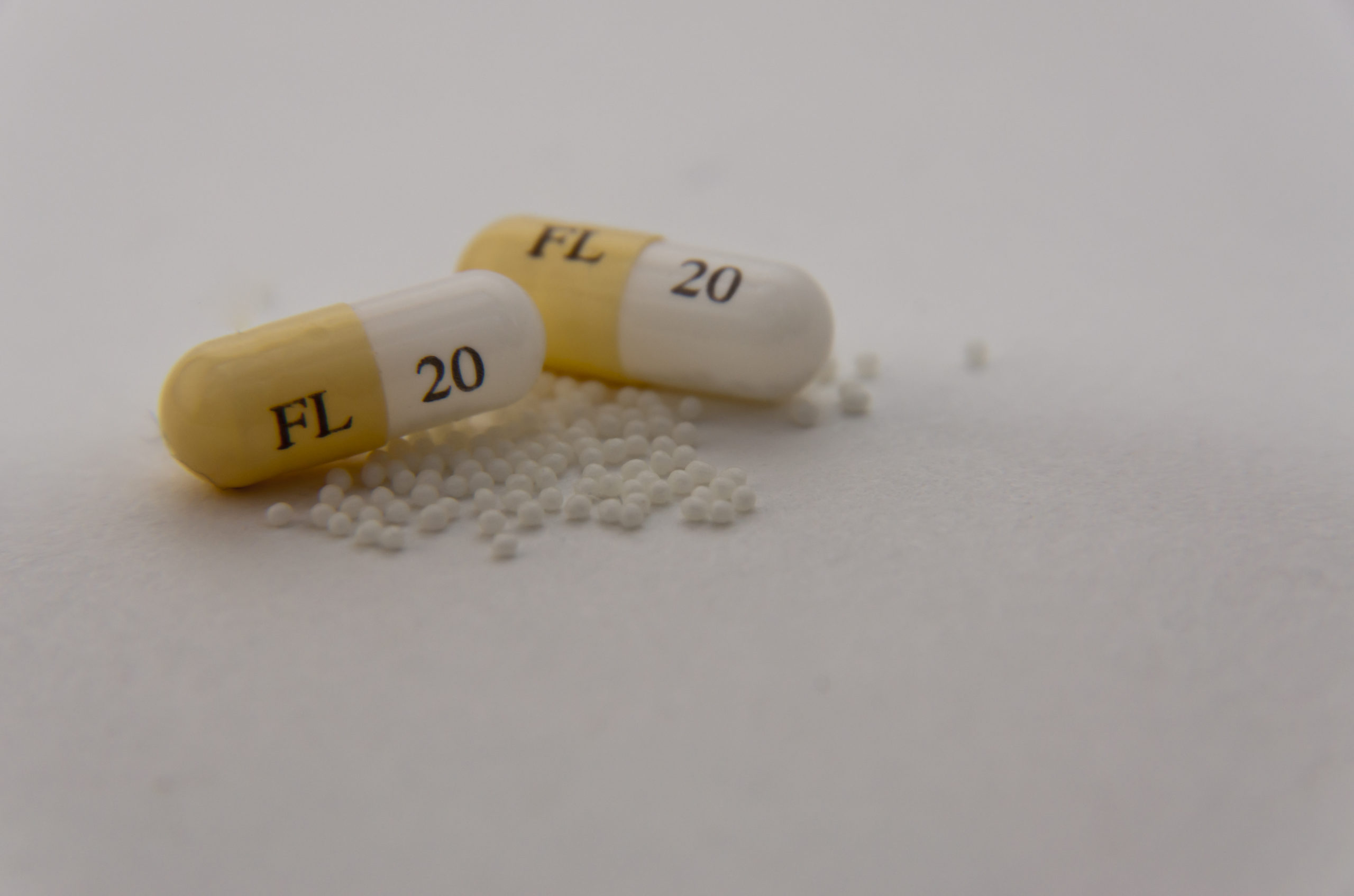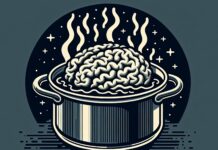A new study, published in the journal European Neuropsychopharmacology, found associations between selective serotonin reuptake inhibitors (SSRIs), the most commonly prescribed type of antidepressant, and violent crime. The authors urge further investigation into SSRI and risk-taking behaviors and for increased clinical awareness of the potential risks associated with SSRI use. They point out that in the context of the widespread use of SSRIs, particularly in Western nations, which have seen a dramatic increase in antidepressant use, these results should be taken seriously and should lead to further research.
The researchers, led by Tyra Lagerberg of the Karolinska Institutet in Sweden, add that “in the US, the population prevalence of antidepressant use increased from 6.5% in 1999-2000 to 10.4% in 2009-2010, with almost two-thirds of those prescribed antidepressants being treated with SSRIs in 1999-2010.”

In the current study, researchers used several Swedish national databases to collect demographic information as well as information on pharmaceutical prescriptions, violent crimes, hospitalizations, incarcerations, emigration, and psychiatric diagnoses. Impressively, the study included all individuals in Sweden, aged 15-60 years-old, who had received SSRI prescriptions between 2006 and 2013.
The researchers only included violent crimes that resulted in convictions for their study, with the violent crimes examined, including homicide, manslaughter, robbery, assault, stalking, and sexual crimes, among others.
In total, researchers identified 785,337 individuals with SSRI prescriptions who were ages 15-60 between 2006 and 2013. 20,821 (2.7%) of these individuals had violent crime convictions, with a total of 32,203 violent crimes overall. Younger individuals (age 15-24 years), men, and those with a prior history of violent crime were found to comprise the majority of offenders. Most participants (99%) had changes in their antidepressant use over the course of the seven years examined for the study.
Yet, despite 15-24 year-olds appearing to be more impacted by SSRI treatment than other age groups, the researchers found that there was an increased risk for violent crime across all age groups when comparing individuals during periods on medication versus periods off medication. Moreover, the risks associated with SSRI treatment appeared to extend beyond the end of treatment, up until 84 days after treatment had ended.
The authors urge caution when interpreting the results, however, pointing to the association between mood disorders, which are often treated with SSRIs, and violent crime. They highlight the limited effectiveness of SSRIs among children and adolescents as compared to adults, and suggest that perhaps ineffectively treated mood disorders, coupled with behavioral activation shown to be triggered in children and adolescents by SSRIs, may explain the increase in violent behavior in younger individuals on SSRIs.
Moreover, they note that meta-analyses of randomized controlled trials (RCTs), which assess the effectiveness of treatment, found that SSRIs can cause aggression. But, as discussed, these increases were predominantly found in younger individuals. Additionally, participants in RCTs are carefully selected for studies and are not representative of the entire population. Therefore, they do not offer definite answers as to why younger persons are more impacted.
The researchers also acknowledge that 2.7% of individuals were convicted of violent crime over seven years, which shows how this is a rare occurrence. They urge people not to discontinue their SSRI medication in response to their findings.
Although the researchers cannot point to clear cause in this study, risk pertaining to violence and antidepressant use has been documented in a number of other studies. SSRI use has been linked to violent crimes in individuals aged 15-24. Antidepressants have been found elsewhere to induce a state of agitation and restlessness, and potentially, preoccupation with violent thoughts, known as ‘akathisia’.
SSRIs have also been found to be associated with more aggressive and violent suicide attempts, which is concerning considering that violent means could increase the likelihood that the suicide is completed. Further, risks of suicide and violence associated with antidepressant use have been shown to occur across the lifespan, pointing to concerns about their use.
In the current study, the researchers acknowledge the limitations of their work, such as being unable to confirm whether the medications filled were actually taken, and not truly knowing the treatment period, or length of time the person was taking the drug. The design of the study was not to point to an exact cause, but rather to begin an exploration into the risk associated with SSRI use.
The researchers emphasize that their work offers a pathway by which to open up possibilities for future exploration and research to examine more fully the particular risks that can are associated with SSRIs.
They conclude:
“While further research is called for to illuminate questions of causality and risk prediction, our results suggest the need for clinical awareness of the risk for severe violence during and possibly after SSRI treatment across age groups, and provision of information to high-risk individuals.”
****
Lagerberg, T., Fazel, S., Molero, Y., Franko, M. A., Chen, Q., Hellner, C., Lichtenstein, P., Chang, Z. (2020). Associations between selective serotonin reuptake inhibitors and violent crime in adolescents, young, and older adults – A Swedish register-based study. In press, European Neuropsychopharmacology. (Link)















Thanks Ashley.
We really don’t need further investigation. Investigations should not continue for over a hundred years. Continually psychiatry has been found to be a hoax, yet continually we “investigate” that hoax. As they smile.
As they themselves partake in showing how psychiatry USED to be, as they smile.
Report comment
Thank You Ashley,
Psychiatric Drug induced Suicide, Homicide and Violence tend to be closely related. Society would be a lot safer without “antidepressants”.
Report comment
“Antidepressants” have already had studies showing they lower inhibitions and empathy.
Yet prominent psychiatrists urge that still more people be put on these drugs to lower mass killings. Arguing that people murder others because of low self esteem. I dunno. How about not thinking about future consequences (low inhibitions) and not caring about others (lack of empathy)?
Astounding ignorance as to how human beings think or what motivates us. Pseudo science combined with a view of humanity less complex or nuanced than a comic book.
These mind altering drugs do not transform a bunch of Mr. Hyde’s into Dr. Jekyll’s anymore than heroin does. NAMI propaganda notwithstanding.
Report comment
Right Rachel.
The ignorance is what gets me. To even have to argue such garbage.
Report comment
Death
On 14 June 2020, Rajput, aged 34, was found dead hanging from the ceiling fan in his home in Bandra, Mumbai.[67] He had reportedly been suffering from depression for about six months. No suicide note has been found as of 15 June 2020.[68] According to Mumbai Police IPS officer Vinay Chaubey, medical prescriptions and medical reports were found in Sushant’s room and an investigation is underway.[69][70]
https://en.m.wikipedia.org/wiki/Sushant_Singh_Rajput
Report comment
IMO the answers to Depression and Anxiety, were ‘invented’ in India, and are available more or less for free. And we are very grateful in the West to be able to access them.
https://youtu.be/b5qmbEt3Dyg
Report comment
DUPLICATE COMMENT.
Report comment
My childhood progression: strung out on ritalin; given mellaril as a “mild” sedative – severe neurological disorders ensue; put on “antidepressants” – behavioral problems ensue; put on more neuroleptics — haldol, risperdal — and then more “antidepressants” and then cold turkey withdrawal to where after a few months of isolation in my attic room at age 13, I was starting to do better and come out of it all… just as I was then sent to Hawthorn center in Novi/Livonia for four and a half months to be effed up permanently on haldol.
Report comment
Working as an advocate for foster youth, I saw this same pattern over and over. Stimulants for “ADHD” leading to deterioration/aggression, leading to more drugs, leading to more deterioration, eventually leading to kids on 4-5 drugs who can’t maintain in a foster home and end up in residential “treatment” centers. And yet mentioning that the “treatment plan” seems to be leading to more and more deterioration is met with hurt feelings and outrage, or with complete dismissal. Isn’t “treatment” supposed to make you better?
Report comment
Horrid abuse. Our governments abuse kids. They make money off children.
How low can a man go and still believe he is a man.
Report comment